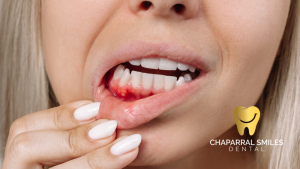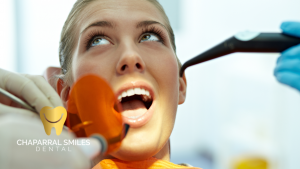Prevention is key to maintaining a healthy smile, and understanding the role of dental probiotics can significantly impact your oral health. These beneficial bacteria help to balance the oral microbiome, reducing the risk of cavities, gum disease, and bad breath.
By incorporating dental probiotics into your routine, you can enhance your body’s natural defenses against harmful pathogens, ensuring that your mouth remains a healthy environment. This blog post will delve into the science behind dental probiotics and explore how they can be an effective tool in your preventive dentistry regimen.
Key Takeaways:
- Dental probiotics may help balance the oral microbiota and potentially reduce the harmful bacteria associated with gum disease and tooth decay; however, more robust clinical studies are needed to confirm these findings.
- Incorporating probiotics into daily oral care routines may enhance overall oral health, improving breath freshness and reducing the risk of cavities.
- Research suggests that specific strains of oral probiotics can support the immune response in the mouth, contributing to long-term dental health.
Understanding Dental Probiotics
A dental probiotic is a live microorganism that, when introduced into your oral environment, can provide health benefits. These beneficial bacteria are specifically designed to restore and maintain the natural balance of oral flora, helping to combat harmful pathogens that contribute to dental issues such as cavities and gum disease.
By incorporating dental probiotics into your oral hygiene routine, you can support the overall health of your mouth.
Definition and Composition
At their core, dental probiotics consist of strains of bacteria that are beneficial for your oral health. These typically include Lactobacillus and Streptococcus species, which have been studied for their ability to inhibit the growth of harmful bacteria.
They come in various forms, including lozenges, gums, and powders, designed to be easily integrated into your daily routine.
Mechanism of Action
Dental probiotics work by establishing a healthy balance in your oral microbiome. They compete with harmful bacteria for resources, thereby inhibiting their growth and proliferation.
This competition can reduce dental caries and periodontal diseases. Additionally, these beneficial microbes can enhance your immune response, further protecting your oral health.
“Think of dental probiotics as the ‘good guys’ battling the ‘bad guys’ in your mouth. They not only fight off harmful bacteria but also create a more hospitable environment for the beneficial bacteria that contribute to a healthy smile.” – Dr. Kevin R. Kalin
For instance, when dental probiotics are introduced, they exert their effects by producing bacteriocins, proteins that specifically target and kill pathogenic bacteria. This process not only helps to lower the levels of harmful microorganisms in your mouth but also promotes the growth of beneficial bacteria.
Furthermore, some strains can even enhance salivary flow and improve the pH balance in your mouth, contributing to a healthier dental environment.
Benefits of Dental Probiotics
It is essential to recognize the numerous benefits of dental probiotics, which can substantially improve your oral health and contribute to your overall well-being. These beneficial microorganisms play a vital role in maintaining balance within your oral microbiome, ultimately supporting your dental hygiene practices and fostering a healthier mouth.
Oral Health Improvement
Between improved breath and reduced plaque buildup, dental probiotics can transform your daily oral care routine. They actively work to outcompete harmful bacteria, ensuring that your mouth remains a sanctuary for beneficial species instead of a breeding ground for decay and infections.
Prevention of Dental Diseases
Against common dental issues, dental probiotics provide a frontline defense for your mouth. They not only combat harmful bacteria responsible for cavities and gum disease but also promote an optimal pH balance in your oral environment.
“Dental probiotics offer a proactive approach to oral health, helping to prevent problems before they start. By maintaining a balanced oral microbiome, we can significantly reduce the risk of cavities and gum disease.” – Dr. Kevin R. Kalin
To effectively safeguard your teeth and gums, dental probiotics offer a multifaceted approach to preventing dental diseases. By introducing beneficial bacteria into your oral cavity, you can reduce the risks of caries and gingivitis.
These beneficial bacteria can outcompete pathogenic strains, helping to maintain a balanced microbial ecosystem. With regular use, you can reduce acid-producing bacteria, which indirectly supports the preservation of enamel and gum health.
Probiotics in Preventive Dental Treatments
All dental professionals are increasingly recognizing the potential of dental probiotics in preventive dentistry. By promoting the growth of beneficial bacteria, these probiotics may play a key role in reducing the risk of oral diseases such as cavities and gum disease.
Incorporating dental probiotics into your oral hygiene routine could enhance the effectiveness of traditional preventive treatments and improve overall oral health.
Integration with Traditional Practices
To effectively leverage the benefits of dental probiotics, it is vital to integrate them with traditional oral care practices. This means complementing your usual routine, such as brushing and flossing, with products that contain probiotics.
This dual approach not only fortifies your oral microbiome but also optimizes the prevention of tooth decay and periodontal issues, ensuring a holistic strategy for your dental health.
Case Studies and Clinical Trials
Numerous case studies and clinical trials have been conducted on dental probiotics, demonstrating promising outcomes. The following findings highlight the positive impact of probiotics on dental health:
- Study 1: One clinical study reported a reduction in plaque and caries risk among participants who used probiotic lozenges, although the exact reduction rate may vary depending on the study design and the strain used.
- Study 2: Some trials have found that probiotic mouthwashes may significantly reduce gum inflammation, particularly when used alongside standard oral hygiene practices.
- Study 3: In pediatric populations, the addition of probiotics to brushing routines has been linked to improved oral hygiene outcomes in some studies.
Integrating dental probiotics into your routine can significantly enhance the effectiveness of the preventive measures you already undertake. By adopting these solutions, you may experience reduced gum inflammation, a more balanced oral microbiome, and overall improved oral health.
Moreover, ongoing clinical trials continue to explore the long-term benefits and effectiveness of probiotics, presenting a promising future for their role in preventive dentistry.
Choosing the Right Dental Probiotics
It’s important to evaluate your needs and preferences to find the best dental probiotics for your oral health. Dental probiotics can significantly impact your oral microbiome, and selecting the right one can enhance your preventive dental care.
“Not all dental probiotics are created equal. Choosing a high-quality product with strains specifically targeted for oral health, like S. salivarius K12 or L. reuteri, is crucial for optimal results. Discuss options with your dentist to determine the best fit for your individual needs.” – Dr. Kevin R. Kalin
Look for products specifically formulated to combat bad breath, promote gum health, or support the strength of tooth enamel. Consulting with your dentist can also guide you in making informed choices.
Factors to Consider
Across your journey to optimal oral health, certain factors should guide your probiotic selection:
- Strain specific to oral health
- Formulation (chewable, lozenge, or capsule)
- Presence of additional nutrients
- Brand reputation and research backing
Recognizing these elements can help you find a product that aligns with your specific dental goals.
Recommended Products
In addition to careful consideration, selecting well-reviewed dental probiotics can enhance your oral hygiene routine. Look for products that contain proven strains, such as Streptococcus salivarius K12 or Lactobacillus reuteri DSM 17938, which have been studied for their ability to promote healthy gums and reduce bad breath.
Ensure that the product is free from harmful additives and has undergone third-party testing for quality assurance.
However, choosing the right dental probiotics can significantly impact your oral health outcomes. Products with live and active cultures can help balance your oral flora, decreasing the risk of cavities and gum disease.
Choosing ones backed by clinical research ensures efficacy. Always be mindful of ingredients that may cause allergies or adverse reactions, as well as the importance of dosage for effectiveness.
Your commitment to the right dental probiotics can lead to a more vibrant and healthier smile.
Potential Risks and Limitations
Not all individuals may benefit from dental probiotics, and their use can come with certain drawbacks. Some people may experience unintended side effects, including gastrointestinal discomfort or allergic reactions.
Additionally, the effectiveness of probiotics can vary based on individual health conditions, and relying solely on them for oral health care could lead to neglecting more traditional preventive measures.
Side Effects
Potential side effects of dental probiotics can include mild digestive issues, such as bloating, gas, or diarrhea, particularly in those not accustomed to probiotic intake. If you experience any persistent or severe reactions, it is important to consult your healthcare provider.
Misconceptions and Myths
For some, dental probiotics are mistakenly viewed as a catch-all solution for oral health issues. While they can aid in maintaining a balanced bacteria population, they are not a substitute for regular dental hygiene practices, such as brushing and flossing.
Many believe that probiotics can completely replace traditional treatments, which is not accurate.
Additionally, there is a common misconception that all probiotics are equally effective. In reality, the efficacy of probiotics varies significantly based on the specific strains used and your health status.
It’s essential to select products with clinically proven strains for oral health and consult your dentist if you have any concerns. Understanding the correct role of dental probiotics will help you make informed decisions about your oral care, keeping your mouth healthy while avoiding potential pitfalls.
Future Directions in Dental Probiotic Research
After exploring the present applications of dental probiotics, the future looks promising with ongoing research aimed at uncovering their full potential in oral health. Advances in microbial genomics and personalized medicine will pave the way for targeted probiotic therapies, allowing you to address specific oral health issues more effectively.
Additionally, a deeper understanding of the gut-mouth connection may lead to holistic approaches that combine oral and systemic health, ultimately enhancing overall well-being.
Emerging Technologies
For those looking to stay ahead in dental health, emerging technologies such as bioinformatics and synthetic biology are set to revolutionize the development of probiotics. These innovations may enable researchers to develop targeted probiotics designed to inhibit specific oral pathogens.
As a result, you may experience improved outcomes in managing conditions like dental caries and gum disease.
Long-term Studies and Efficacy
By conducting long-term studies, researchers aim to establish the lasting effects and efficacy of dental probiotics in preventing oral diseases. Your understanding of how these beneficial microorganisms impact oral health over extended periods will deepen, enabling you to make informed choices regarding their use.
Dental probiotics are increasingly being highlighted in long-term studies due to their potential beneficial effects on oral and overall health. These studies aim to track not only the immediate health improvements you might notice, such as reduced plaque and lower incidence of cavities, but also their impact on long-term oral flora balance.
Through these rigorous investigations, you can expect to gain a deeper understanding of how consistent probiotic use can provide a sustainable solution for maintaining your oral health, ultimately leading to improved well-being over time.
Conclusion
With these considerations, you can appreciate the significant role dental probiotics play in preventive dentistry. By incorporating probiotics into your oral care routine, you can enhance your oral microbiome, reduce the presence of harmful bacteria, and potentially decrease the risk of cavities and gum disease.
Staying informed about these beneficial bacteria empowers you to make proactive choices for your dental health, promoting not only a healthier smile but also overall well-being. Embracing dental probiotics is a valuable step towards achieving optimal oral hygiene and preventive care.
Incorporating dental probiotics into your daily routine is a great start, but it’s no substitute for expert dental care. At Chaparral Smiles Dental, we’re here to support your preventive dental journey with personalized guidance and professional care.
Have questions or want to schedule an appointment? Contact us today and take the first step toward a healthier, brighter smile!
Reviewed by: Dr. Kevin R. Kalin





